10 Healthy Ways to Naturally Detox Your Body

There’s no single definition for a “detox diet.” However, you’ll see common characteristics when researching this practice. In general, some may follow a detox to eliminate toxins from their body; others might follow this diet for weight loss or health concerns. It’s possible a detox could help with all of these issues, because it’s a restrictive approach to eating that drastically limits total food consumed and the time frames in which you should eat, and it focuses on minimally processed foods. However, there are healthier ways to naturally detox your body that will help you achieve the results you’re looking for, which we’ll chat about today.
Instead of limiting your total food intake, you can put more focus on the types of food you are consuming. Those that have undergone minimal to no processing, such as fruits, veggies, whole grains, and proteins, should be the focus of a detox. This limits questionable preservatives, sodium, and additives while still providing your body with essential nutrients. In addition to eating less processed food, you can focus on specific nutrients, like those high in anti-inflammatory compounds. This can aid in detoxing your body while supporting you at the cellular level. Lastly, certain supplements, such as probiotics, might be helpful in the detox process while aiding your natural digestive process.
When eating with weight loss in mind, it can be tempting to follow a restrictive strategy to expedite results. Although, you may be better off with a more flexible plan to allow for more longevity while you work toward your goals. Following a detox doesn’t have to mean consuming only lemon water and three days straight. There are much more sustainable ways to approach a detox. Here are 10 healthy ways to naturally detox your body for weight loss. Keep reading to learn more, and when you’re finished, be sure to check out our 50 Best-Ever Weight Loss Tips.

Some studies have noted the benefits of moderate alcohol consumption, while other bodies of research document the harmful effects of heavy drinking. Although there might be some healthy benefits to an occasional glass of red wine, you may be better off skipping alcohol altogether.
Alcohol creates more work for your liver. This organ is responsible for turning alcohol, which is toxic in your body, into a harmless substance. In the case of excessive drinking, this can damage your liver over time, limiting its ability to carry out its many important functions, like detoxifying. While an occasional drink likely won’t harm your liver, consider keeping your alcohol intake as low as possible. This may also save you from empty calories, aiding in weight loss.
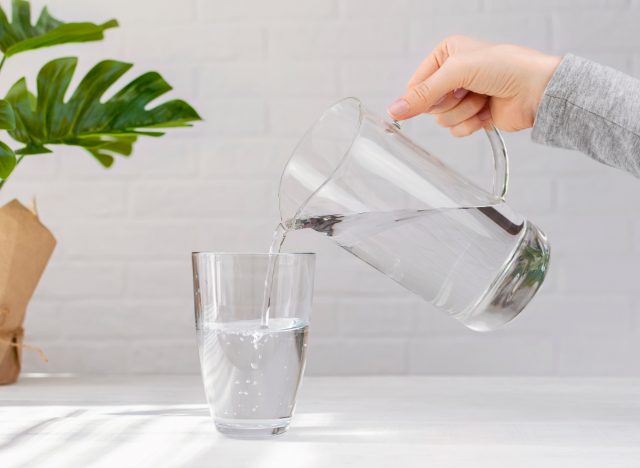
Water is essential for many bodily functions, including temperature regulation, nutrient absorption, waste removal, and detoxifying. Water is required for the removal of waste, like urea and carbon dioxide, via sweating, breathing, and urinating. When you are dehydrated, any number of these functions could be negatively impacted.
Everyone’s fluid needs are different based on weight, body composition, and exercise habits, just to name a few factors. However, adults consuming at least 80 ounces of liquid per day are likely on their way to better hydration. Make sure at least half of your total ounces of fluid are from water, and aim to have your water ounces far outweigh your other fluids.
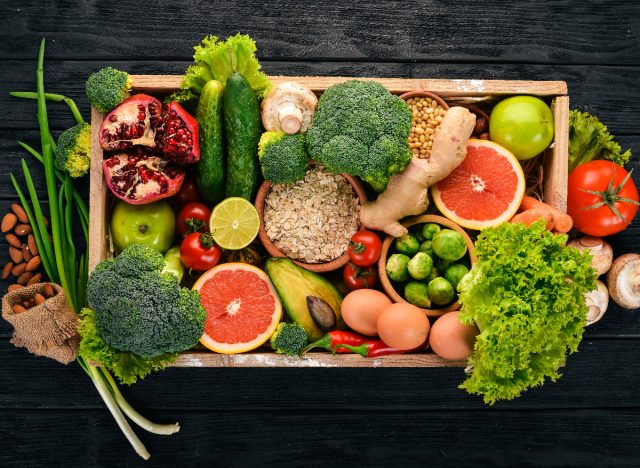
Fruits and vegetables contain many important nutrients. They are known for packing vitamins, minerals, antioxidants, fiber, and more. Not only can the fiber in produce aid in ridding your body of waste as part of the detoxification process, but the micronutrients and compounds in produce can support your body on a cellular level.
So many basic bodily functions require vitamins, and fruits and veggies are a great way to ensure your body has a large pool of vitamins to use in these processes. Not to mention, filling up on produce can keep you fuller, assisting you in skipping less nutritious food that may be harmful to your body and detract from your weight loss goals.
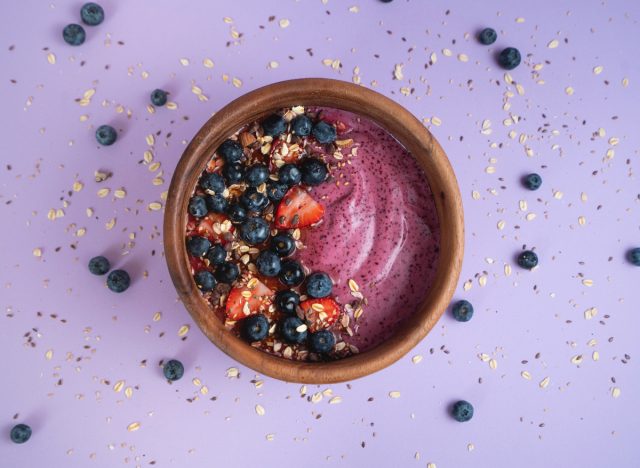
Antioxidants come in many shapes and forms, but their common function is protecting your cells against damage. Cellular damage is caused by free radicals which can be naturally produced through normal bodily functions or created through lifestyle choices. Alcohol, tobacco use, and a poor-quality diet are some of the factors that can enhance the production of free radicals.
Eating foods rich in antioxidants is one way to combat these damaging free radicals. Fruits and vegetables are notable for their antioxidant content. You’ll also find them in nuts, seeds, spices, herbs, and even coffee and green tea. Eating foods rich in antioxidants will likely result in a higher overall quality diet, which could propel you toward more weight loss.
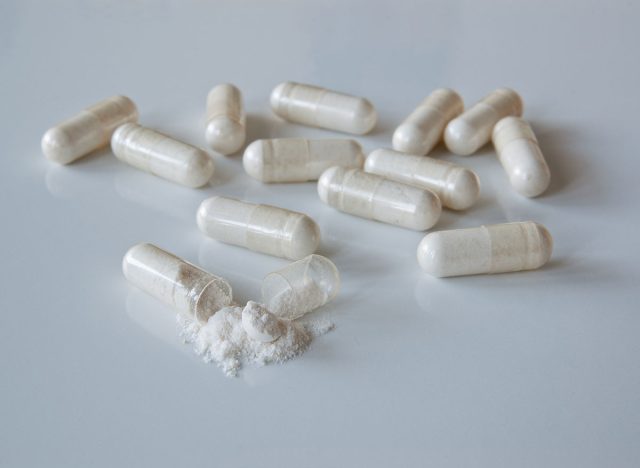
Probiotics are healthy bacteria in your gut that aid many functions. While research shows some probiotics are involved in detoxification processes, others can assist in weight loss, and some support a healthy digestive system. Because of the far-reaching functions of probiotics, they are able to influence detoxification in several ways. Probiotics can be found in many popular foods, like Greek yogurt, kefir, sauerkraut, and fermented foods.
If these don’t appeal to you, or you don’t eat them on a regular basis, a probiotic supplement may be ideal. A probiotic supplement can support a healthy balance of bacteria in your gut and ensure probiotics are available for their many important functions.

Sugar can be found in a wide variety of foods and drinks, from the obvious soda and candy to the less apparent sauces, condiments, and savory foods. Sugar can lead to excess calorie intake which may make weight loss more challenging. Too much added sugar may also lead to fat build-up in your liver, causing potential harm to this important detoxifying organ.
To allow your body to continue its natural detoxifying functions, you should limit the added sugar in your diet. This will support liver health and remove empty calories from your diet.
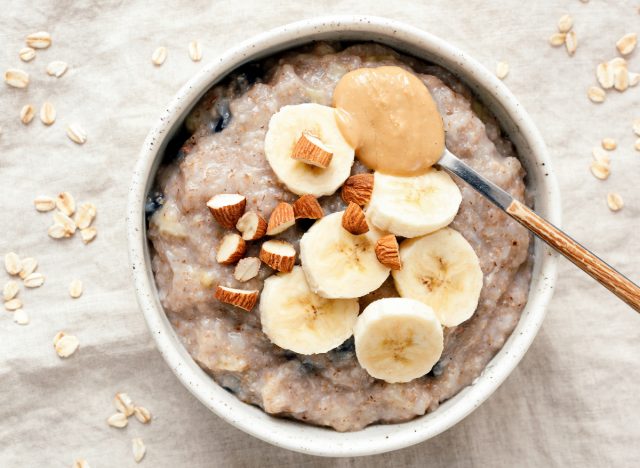
Superfoods are those that have high nutritional density. Many fruits and vegetables fall into this category, as well as popular proteins, such as salmon and peanuts. What’s unique about superfoods is their concentration of micronutrients, antioxidants, and other compounds.
Peanuts, in particular, contain 19 vitamins and minerals, fiber, and heart-healthy fats. The fiber content of peanuts allows them to be a filling food that supports healthy digestion and detoxification. At the same time, the nutrient profile of peanuts can help support your weight loss goal. In fact, a 2022 study published in Nutrients found daily consumption of lightly salted peanuts twice a day before meals led to weight loss, lowered blood pressure, and improved fasting glucose levels. Enjoy a small handful of peanuts for a quick snack, add peanut butter to your oatmeal, and incorporate peanuts into a homemade trail mix.
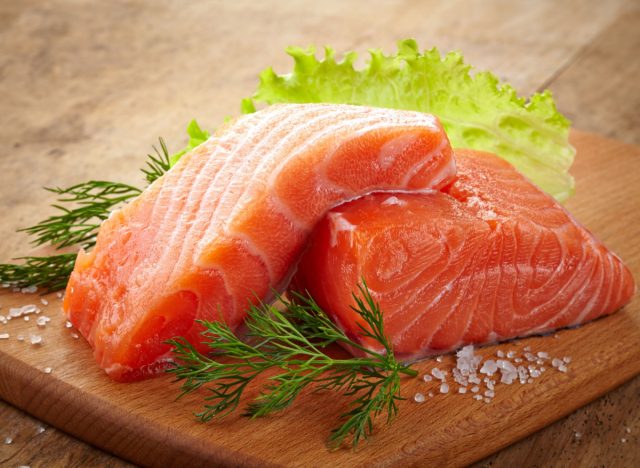
Certain nutrients, like omega-3 fats, can reduce the amount of inflammation in your body. While some people may follow a restrictive detox to reduce their inflammation, there are healthier ways to go about this goal. By increasing the number of anti-inflammatory foods you eat, you can reduce inflammation while consuming other important nutrients that serve various functions in your body. Examples of anti-inflammatory foods include fatty fish, like salmon and sardines, along with nuts and green leafy vegetables. Similar to the other foods listed in this article, these are all minimally processed and support both goals of weight loss and detoxification.
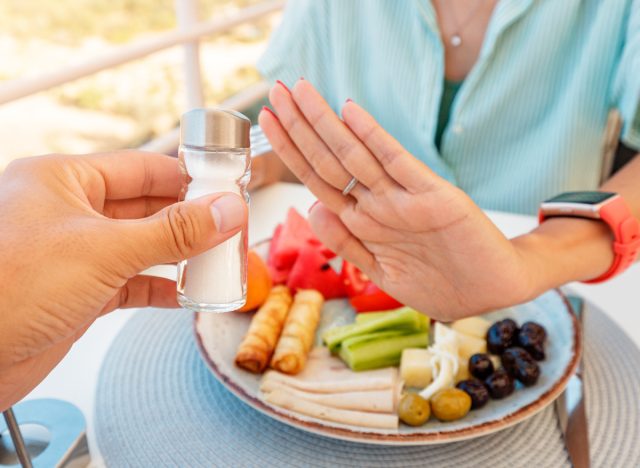
Although you need to consume a minimum amount of salt each day for normal physiology, too much salt could lead to excess water weight and health issues. When it comes to detoxifying, an excess of dietary salt can result in an increase in the production of a hormone that will reduce your frequency of urination, leading to less detoxification.
When you reduce the salt in your diet and increase your fluid intake at the same time, you’ll be supporting your excretory system. Additionally, eating more potassium-rich foods can counter some of the effects of sodium. These include bananas, potatoes, and cantaloupe.
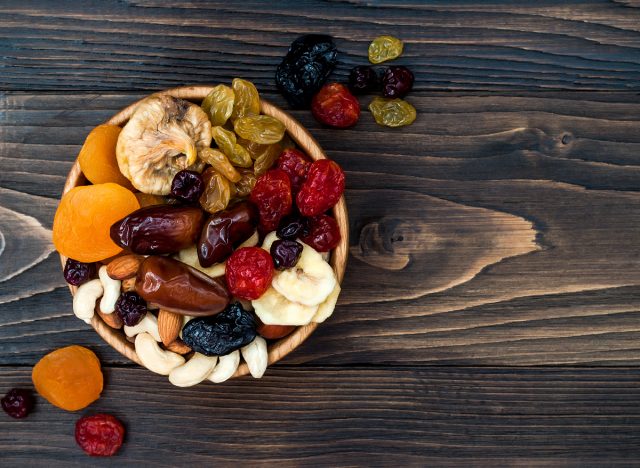
Fiber serves a few functions when it comes to detoxifying your body. Soluble fiber serves as a prebiotic, which is essentially a food source of the probiotics in your gut. Eating more prebiotics supports the health of probiotics and allows them to fulfill their important functions. Insoluble fiber is the form that supports the digestive tract, adding bulk to your stool and aiding in the timely passage of waste. Additionally, fiber is a very filling nutrient. A diet high in fiber may allow you to feel fuller throughout the day, reducing the likelihood of overeating less nutrient-dense foods. This supports weight loss while also contributing to detoxification. Fruits, vegetables, nuts, seeds, legumes, and whole grains are excellent sources of fiber.





